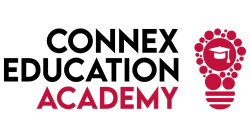What is continuous professional development?
Continuous professional development, or CPD for short, is all about ongoing training, professional learning and upskilling for those in the workforce. As the saying goes, you should never stop being a student! With the development of online courses, it is easier than ever before for professional development activities to take place and allow individuals to undergo CDP activities in their own time.
As an educator, continuous professional development is vital for staying ahead of the curve. The world of teaching is constantly evolving, with new pedagogies, technologies, and best practices emerging regularly. What you learned in your initial teacher training lays the foundation, but CPD provides ongoing opportunities to expand your skills and knowledge throughout your career.
From training sessions and taking online courses to conferences and mentorships, continuous professional development takes many forms – all to enhance your prior knowledge and uncovering gaps in your training. It ensures you’re implementing proven, modern methods that truly engage students. Many teaching accreditations also mandate regular CPD to maintain your credentials.
At its core, committing to lifelong learning through CPD demonstrates your passion for the profession. It’s an investment in yourself that pays dividends through improved student outcomes and career growth. Embrace being a lifelong learner – your students will thank you for it.

The Importance of CPD for Teachers
Keeping up with CPD (Continuing Professional Development) is really important for teachers. It helps them improve their knowledge of what they’re teaching and the best ways to actually teach it. The world of education is constantly changing, so CPD allows teachers to stay in the loop with new techniques, research and how to support kids with different learning needs. Essentially, doing regular CPD means teachers can keep growing, stay motivated and be better equipped to inspire their students. It’s about embracing lifelong learning so teachers feel confident they’re giving their classes the best possible lessons.
What are the features of effective CPD for Teachers?
The real test of an effective CPD programme isn’t about the trainer’s expertise, but whether it actually improves teachers’ classroom practices and student outcomes. Systematic reflection and evaluation of teaching approaches should be the top priority for teachers, school leaders and CPD providers alike.
When teachers feel ownership over their professional learning, contribute to the learning culture, and experience trust and openness, it massively impacts their CPD success. The DfE guidance emphasises programmes spanning over two terms with ongoing support and follow-up activities – one-off sessions just don’t cut it. Effectiveness comes from tried-and-tested techniques with strong evidence of sustainable, classroom-proven impact.
With so many CPD providers out there, teachers should opt for research-verified programmes that genuinely enhance their lifelong professional growth and outcomes. A challenging, high-quality provider makes a huge difference. Programmes tailored to each teacher’s day-to-day needs and context, like behaviour management strategies, are easily integrated into their practice.
According to the DfE, truly effective CPD promotes collaboration through peer exchanges, focused discussions on practice, and great resources that leave a lasting classroom impact. While external expertise is valuable, teachers also learn immensely from each other, shaping their own professional journeys within classroom realities and shared challenges.

How can CPD contribute to better student learning outcomes?
Engaging in quality professional development is like giving teachers a superpower to unlock their students’ full potential. By continuously developing their subject knowledge and gaining new skills, educators can deliver lessons that are finely tuned to how each class learns best. They get to stay ahead of the curve with the latest teaching strategies, ensuring their approach remains fresh, engaging and tailored to diverse learner needs.
Meaningful CPD boosts the individual teacher’s confidence and reignites their passion for the craft. When students see enthusiastic, skilled teachers committed to growing alongside them, it creates a classroom buzz that inspires deeper learning and better achievement. Simply put, investing in our educators’ professional growth paves the way for our young people to thrive.
Find new teaching methods and teaching strategies
Keeping things fresh in the classroom is key for inspiring young minds, whether you are just starting your teaching career or an experienced member of the teaching staff. That’s why it’s so important for teachers to actively seek out new teaching strategies through quality professional development. Whether it’s attending workshops, collaborating with colleagues, or diving into the latest research, exploring different instructional methods can reignite their passion and breathe new life into lessons.
But CPD isn’t just about the new – it also provides valuable opportunities for teachers to build upon their existing skills and subject knowledge. By reflecting on their current practices, identifying areas for growth, and learning innovative techniques, educators can take their teaching to new heights. It might be mastering that cutting-edge tech tool, gaining deeper insights into their students’ diverse needs, or simply refining their behaviour management approaches. With an open mindset and commitment to lifelong learning, teachers can continuously elevate their craft while staying in tune with ever-evolving best practices.
School Leaders this is for you!
How to create a professional development plan for teachers?
Crafting an effective professional development plan is like mapping out a pathway for teachers to continually grow and thrive. It begins by collaborating with educators to understand their unique goals, strengths and areas they’d like to develop further. From there, it’s about setting achievable milestones and identifying rich learning opportunities tailored to their needs – whether it’s training workshops, peer observations or diving into educational research. A well-rounded plan interweaves different formats to keep things engaging, while aligning with the school’s broader vision. Crucially, it prioritises ongoing support through coaching, feedback loops and chances to put new skills into practice in the classroom.
1. Set SMART, professional goals:
Goal-setting is the foundation for any successful professional development journey. That’s why it’s so important for teachers to clearly define SMART goals – goals that are Specific, Measurable, Achievable, Relevant and Time-bound. These criteria help educators get laser-focused on the skills or knowledge areas they want to target and why. Maybe it’s mastering differentiated instruction strategies to better support diverse learners, or enhancing expertise in a particular subject to deliver even richer, more engaging lessons. Whatever the aim, crafting SMART goals provides motivation, a roadmap and criteria for measuring progress over time.
2. How to engage teachers in professional development:
Keeping teachers energised and invested in their ongoing development is no easy feat, especially with jam-packed schedules. But there are some surefire ways to boost engagement and make professional learning opportunities irresistible. First off, make sure they’re highly relevant, hands-on and rooted in the realities of the classroom. Involve educators in the planning process and encourage them to shape sessions around their most pressing needs or interests. Create structures for choice and voice – whether that’s opting into different workshops or leading training themselves. And don’t underestimate the power of fostering a collaborative culture where teachers can learn from each other’s experiences. With ample chances to immediately apply new skills and reflect collectively, professional development transforms from a checklist task into an empowering experience.
3. How to make continuous professional development programmes effective for teachers?
The key to truly impactful continuous professional development (CPD) is making it an ongoing, sustainable process rather than a one-off event. Start by ensuring programmes are firmly rooted in the latest educational research and evidence-based practices. Then, get teachers invested from the get-go by giving them a voice in shaping the content and format to their specific development needs and interests.
Bite-sized sessions with plenty of time for active learning, collaboration and immediate classroom application are ideal for embedding new knowledge and skills. But don’t stop there – effective CPD has regular follow-up components like coaching, peer observations and feedback loops to support teachers in refining their practice over time. Above all, foster an environment where risk-taking and continuous growth are celebrated. When CPD is a continuous cycle of learning, implementing and refining based on results, it empowers educators to keep evolving as reflective, highly skilled practitioners.
This is why teachers’ professional development should be a priority for every school teacher and school leader’s agenda. Research shows that individual teachers who undertake professional development impact positively on their pupil outcomes and improve teaching styles.
It can certainly be agreed that continuous professional development is not just for trainee teachers or experienced educators it is for anyone who wants to enhance their teaching techniques, knowledge and keep up to date with the latest trends and ever-changing education system in the UK. Allowing great teaching to take place in schools, should lead to high student achievement within the classroom and the entire school.
Don’t forget to check out our ‘After The Bell’ podcast, which you can listen to on a weekly basis on Spotify or Apple Podcasts.
If you would like any more information, please do not hesitate to contact us by email at info@connex-academy.com or call 01253 543 660.




